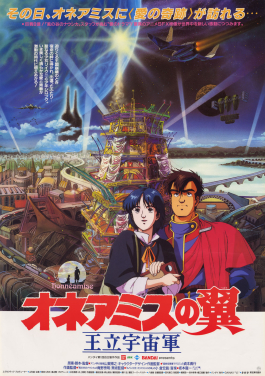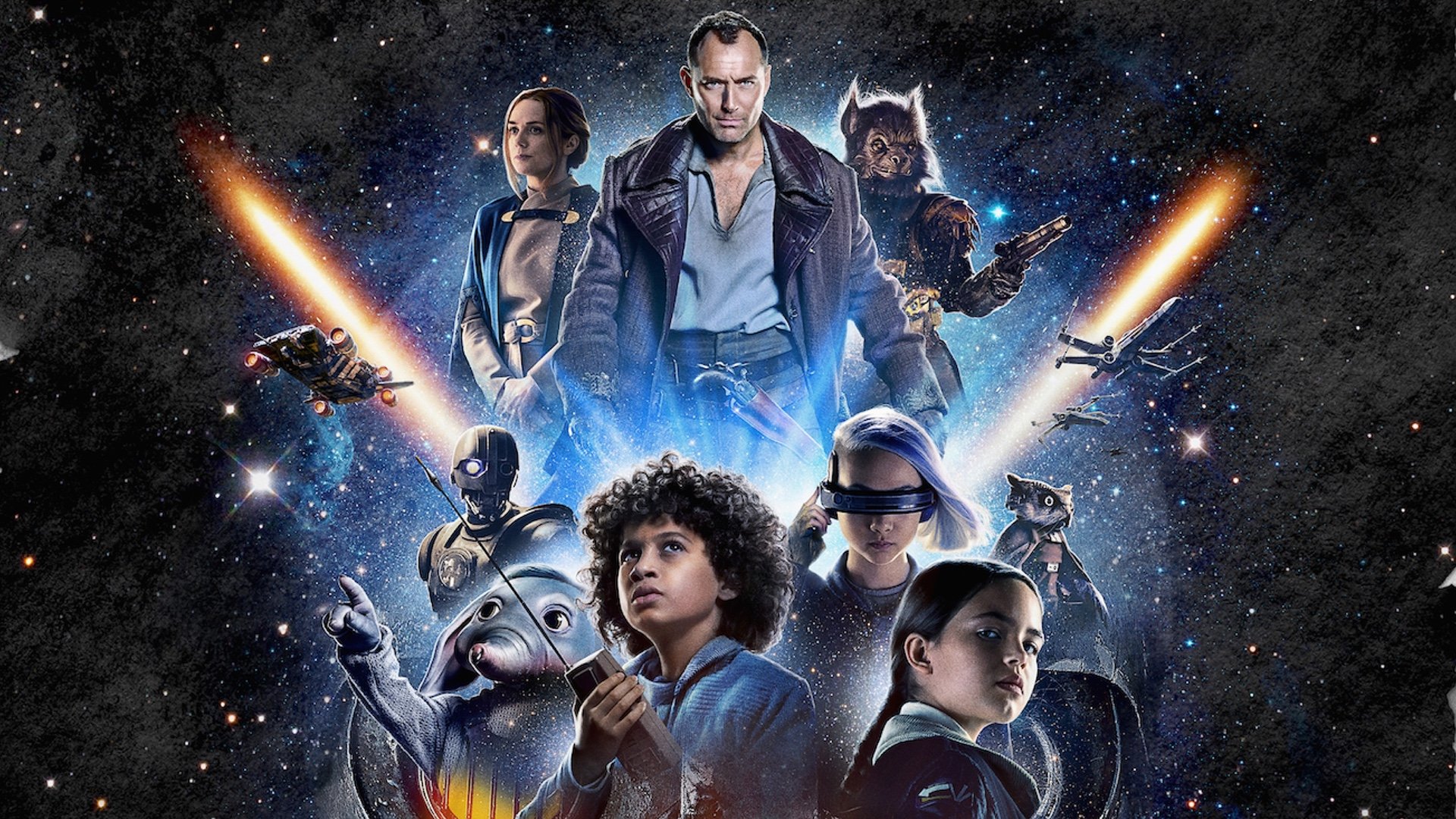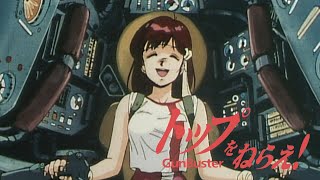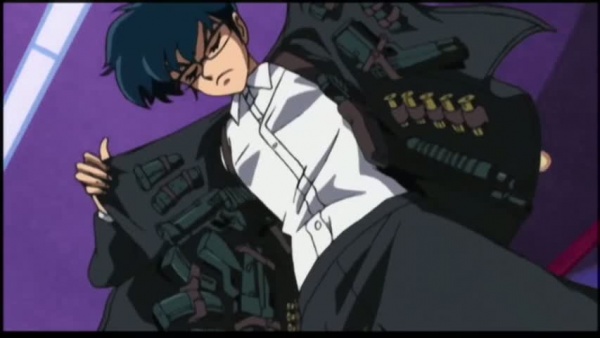
You should watch this movie, I think. It's pretty interesting in ways I didn't expect it to be, but I don't know if I'll watch it again. 7.5/10.
I'm going to take this time to share three little vignettes from this movie and share what they made me think about and how they made me feel. I want to do this because it's parts are better than the sum of them, I think, but without the sum of them the parts are lacking context.
Vignette 1: An aircraft carrier and also "wait, how much do they make?"
This movie opens on a Top Gun. I'm kidding, but even still the movie opens on this absolutely cool-as-hell military tech fetishistic aircraft carrier plane takeoff. Right away we can tell we're in some sort of kinda analogous-ish alternate reality mid-century of sorts. It's not our timeline but it's not entirely foreign. I'm a big mecha lover who thinks the minutes-long reveal of the Enterprise in the first Star Trek movie is one of the best sci-fi scenes ever so this is all immediately up my alley. And after a bit we meet our main guy, Shirotsugh. Our fella is a pretty sad guy, and not just because he's sad but because he's in the loser branch of the military--the Space Force (that our modern Space Force is also a joke is pretty funny).
What immediately stands out as we begin to seep into the world of the movie though is how...precarious everything feels. There's an almost palpable sense of unease--and we get this revealed to us in small ways, like the fact that everyone keeps telling Shirotsugh that he should be lucky he has a job at all, or that his salary is tossed at his feet and we see he makes more money than most of the regular poor folk in town could even imagine.
Just dropped at his feet.
I was technically alive during the cold war. I was born in 1987 so the only world I was making memories in was the Pax Americana one, but as the world of this film revealed itself to me, it did it all so beautifully that I could almost sense what it all must have felt like, especially outside of the US. War and collapse was in the air the way you can smell a thunderstorm coming. How could I smell it myself?
Because things feel that way now. I get a paycheck for doing some computer touching in a tech job. It doesn't get thrown at my feet and gawked at by people watching me from behind a fence, but it's not too far off. Maybe the reason I can smell collapse in the air in this movie is because the creators sensed their impending collapse (the asset bubble was nearing its pop in Japan) as they made it, and maybe I can sense it in my own reality now, in the spring of 2025.
Vignette 2: Why does he do that?
Shirotsugh assaults the woman he falls in with. It's a genuinely startling scene near the end. He's spent the better part of the movie in this combination of falling in love, wanting to have sex with and being inspired by this woman but every time he's pressed on the sex thing, she's rebuffed him. So he assaults her and she hits him and then tells him he's done nothing wrong.
Viewed through the eyes of our gal here--it's maybe an indictment of both me and the movie that I don't remember her name, but for what it's worth I don't remember anyone but Shirotsugh's name's--the world of this movie--the world she inhabits--is a sinful one. Her entire worldview is structured around what passes for the Bible/Christianity in this setting. She's a street preacher, a millenarianist who thinks that the sinful world is in need of cleansing. And Shirotsugh becomes inspired by her. Her hatred and disgust for what the world has become, which originated when her familial town was dispossessed and her sister killed, begins to spread into Shirotsugh and his mini-conversion is what propels him to want to commit fully to being an astronaut and getting into space.
And also getting into her pants, it would seem.
When the assault comes he's about to leave and he hasn't sealed the deal. He's learned that his spaceship is being used as a bait and no one actually believes in the mission anymore, except him and a small cadre of true believers. And this woman in front of him. So he assaults her.
She slaps him and then tells him he's done nothing wrong. The world is sinful and awful. Go blast off in your rocketship, nevermind that they cut of our electricity because I don't have any money. Never mind this starving child, go off into space.
Vignette 2: I cried
Our guy gets into space in what is now one of my favorite sequences in a movie--I think about this sequence regularly since I watched it. The closing action of the movie is that the ship launch point is changed to be in an active war zone. Shirotsugh's government move it there because they know their enemy won't be able to resist invading to steal the rocket. And that's exactly what happens.
But the launch crew persist, and they get the rocket launching. All of the fighting stops and even the fighter jets circling one another in the air stop and gawk at this machine hurtling through the sky.
Shirotsugh has broken free from this sinful earth. As he breaks the atmosphere and begins to orbit, he broadcasts on a radio message that he thinks no one is listening to. After all, who, down on that sinful world wants to hear a message from the heavens?
But what's being sent in his broadcast isn't just a message, it's a plea. Having now become the first human in space, Shirotsugh knows more will follow, and with them will come more sin.
He begs of those listening, or short of that, he begs of God:
"As it becomes a familiar place for us, it'll probably end up as bad as everywhere else we've meddled. We've spoiled the land, We've fouled the air. Yet we still seek new places to live, and so now we journey out to space. There's probably no limit to how far we can spread. Please. Whoever is listening to me. How you do it doesn't matter, just please; give some thanks to man's arrival here."
By this point I was bawling and watching through tears. Shirotsugh is desperate to be heard, desperate to have his prayer answered. How many of us, in this moment in our own history, have begged to be heard?
We're in an absolutely awful mess in our current time, and somehow I feel like this movie understands that. It's the story of a man who decides to go to space to demonstrate we're capable of doing something good. Because we are capable of those things. I know we are. I hope we are.
He ends his prayer like this, which also ends the movie, and which is my own prayer for this moment:
"Please, show us mercy and forgive us. Don't let the way ahead be one of darkness. As we stumble down the path of our sinful history, let there be always one shining star to show the way."


